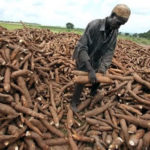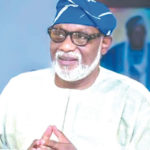A new survey report has shown that as much as 44 per cent of Nigerian households (HHs) were unable to eat a healthy and nutritious/preferred food due to lack of money within the last 12 months of 2019.
It also indicated that 21 per cent of Nigerian households (HHs) were hungry and did not eat because of lack of money in the last 30 days.
The report is part of findings from the National General Household Survey (NGHS) recently released by the National Bureau of Statistics (NBS) in collaboration with the World Bank.
Specifically, the NBS observed that 32 per cent of Nigerian households (HHs) faced food shortages within the last 12 months of the NGHS, with August ticking as the month where food shortage was most experienced (40% of Households) and February lowest at 13 per cent of HHs.
Further breakdown of the report showed that among the regions in Nigeria, households in South-South experienced food shortage the most at 43 per cent of HHs. In the South East, 42.8 per cent of households and 31 per cent in the North East experienced food shortage.
The same 31 per cent of households in the South West, 26 per cent of households in the North West and 17 per cent of households in the North Central experienced food shortage in the last one year.
Further findings showed that for 30 days preceding the survey visits, 27 per cent had to skip a meal because of lack of money.
However, the most common shocks to households increased in food prices, an increase in the price of inputs, flooding and theft of crops, cash, livestock or other property.
ALSO READ: FACT CHECK: How true is president Buhari’s claim on food security?
The NBS noted that 10 per cent of households received safety net assistance and food is the common form of safety net assistance received.
According to the National Bureau of Statistics, households were also asked about their experience with food security and their history of shocks.
It revealed that the percentage of households reporting a food shortage has increased exponentially from 11.1 per cent in 2012/13, to 19.6 per cent in 2015/16, and in 2018/19, 31.6 per cent.
The biggest risk of food insecurity, according to the report, was experienced in the months of July and August.
44 per cent of households reported being unable to eat healthy and nutritious/preferred foods because of lack of money, while 41.3 per cent ate only a few kinds of foods because of lack of money.
The NBS further disclosed that an increase in the price of food items consumed was the most prevalent shock, with 18.5 per cent affirming to this. Most households, 68.8 per cent, when faced with some form of shock, “did nothing” to cope with the shock.
The Nigerian General Household Survey (GHS) is implemented in collaboration with the World Bank Living Standards Measurement Study (LSMS) team as part of the Integrated Surveys on Agriculture (ISA) program and was revised in 2010 to include a panel component (GHS-Panel).
The objectives of the GHS-Panel include the development of an innovative model for collecting agricultural data, inter-institutional collaboration, and comprehensive analysis of welfare indicators and socioeconomic characteristics.
WATCH TOP VIDEOS FROM NIGERIAN TRIBUNE TV
- Let’s Talk About SELF-AWARENESS
- Is Your Confidence Mistaken for Pride? Let’s talk about it
- Is Etiquette About Perfection…Or Just Not Being Rude?
- Top Psychologist Reveal 3 Signs You’re Struggling With Imposter Syndrome
- Do You Pick Up Work-Related Calls at Midnight or Never? Let’s Talk About Boundaries






